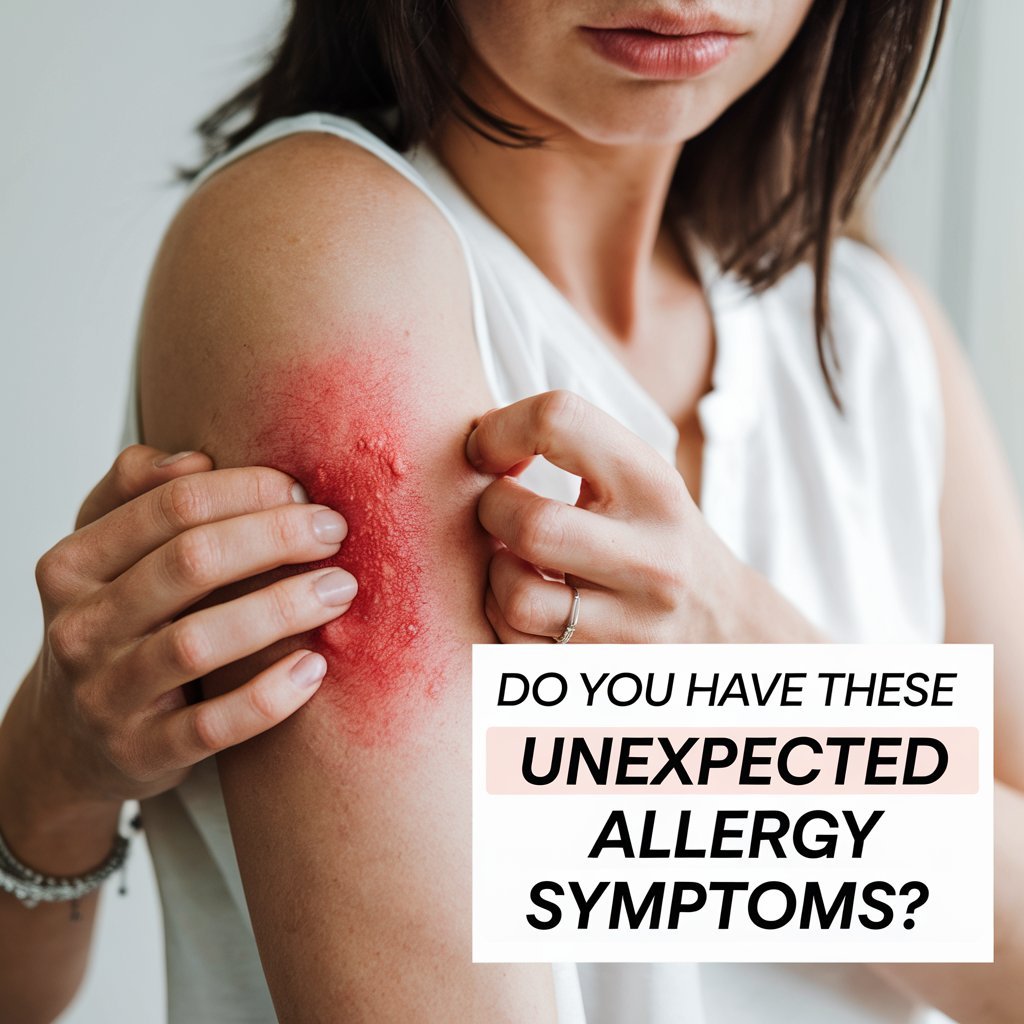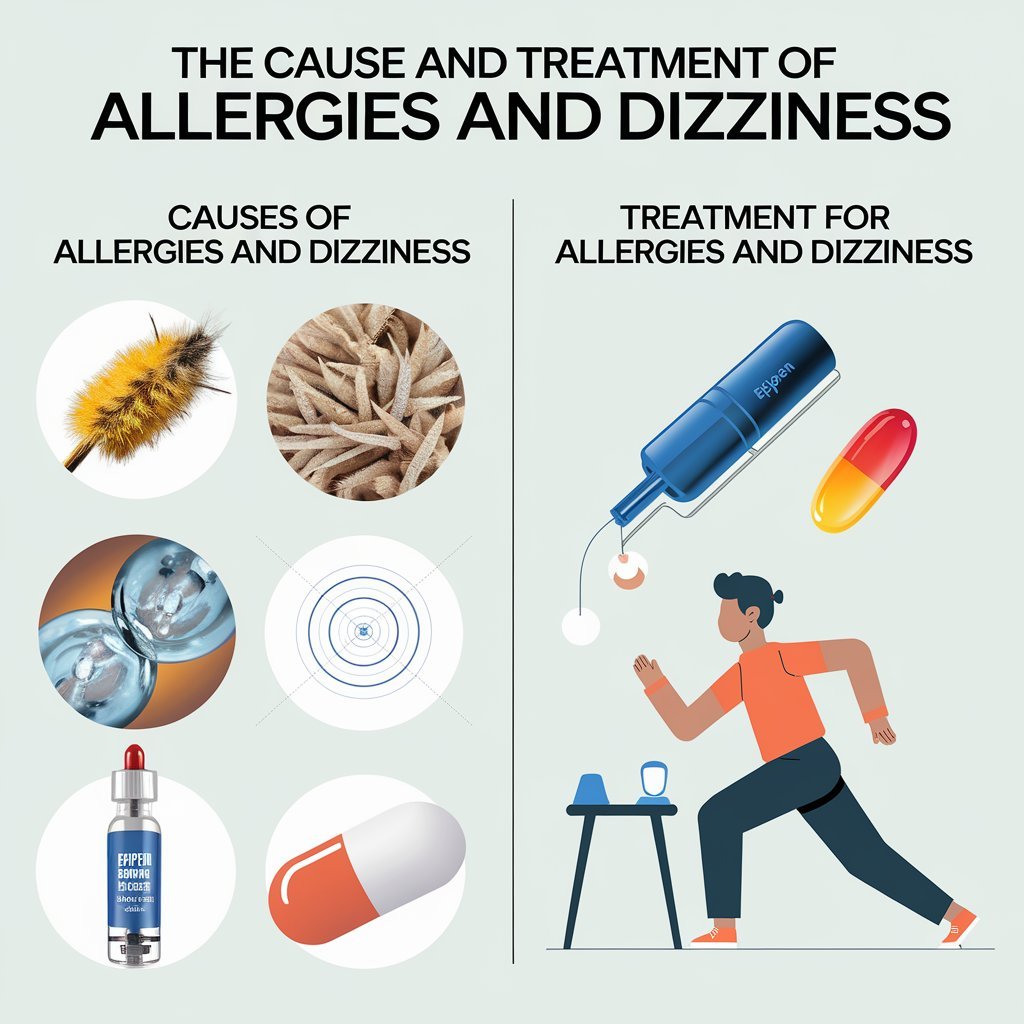Seasonal allergies, also known as allergic rhinitis or “hay fever,” develop during certain times of the year when your immune system overreacts to something in the environment, usually pollen from plants, trees, or grasses. Common symptoms of seasonal allergies include a runny or stuffy nose, sneezing, red or watery eyes, itchy nose, mouth, or eyes, and a scratchy or sore throat.
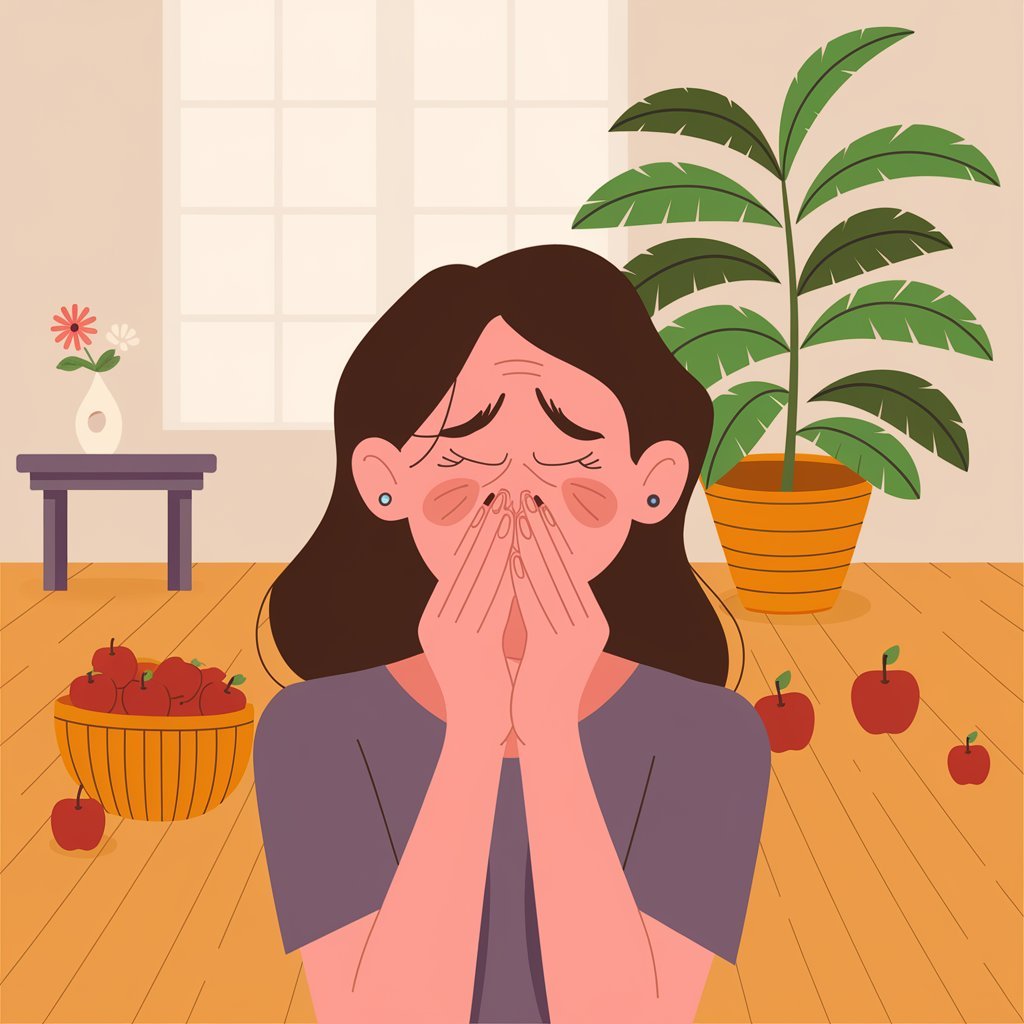
Beyond the common allergy symptoms, some individuals who suffer from seasonal allergies experience a couple of other symptoms that are often not taken seriously or misjudged to be something else. Recognition of such uncommon allergy symptoms can help you know the actual cause behind them and their treatment.
Headache
Two varieties of headaches, migraines and sinus headaches, are produced by seasonal allergies.
- Sinus headache: A sinus headache is generally accompanied by pain located on the sinuses, around the eyes and cheekbones. You might also experience nasal stuffiness and lose your sense of smell to some degree. The cheeks are often tender when pressed, and the pain can radiate to the teeth and jaw.You might be worse lying flat because you aggravate the sinus pressure so much so the discomfort usually peaks in the morning and deems at other times of the day as you move around.
- Migraine: A migraine causes moderate to severe throbbing or pulsing pain that worsens with physical activity. Sensitivity to light, noise, or certain smells is common during a migraine, and you may also experience nausea, nasal congestion, or a runny or stuffy nose.
Recent studies indicate that people with seasonal allergies who seem to have sinus headaches are actually suffering from migraine. Experts believe that sinus headaches are not common, and migraines are often mistaken for sinus headaches because they share similar symptoms.
For this reason, it is important to see a healthcare provider for an evaluation to determine whether your allergy headache is a sinus headache or migraine.
- Over-the-counter (OTC) pain relievers: OTC medications such as Advil (ibuprofen), Tylenol (acetaminophen), or Excedrin Migraine (aspirin, acetaminophen, caffeine) may provide temporary relief from pain
- Decongestants: Nasal sprays or oral decongestant drugs may help reduce sinus congestion and pressure, which may help alleviate allergy headache pain. OTC decongestant sprays include Afrin nasal spray (Oxymetazoline) and Neosynephrine (Phenylephrine). Sudafed and Allegra-D (Pseudoephedrine) are common OTC oral decongestant drugs.
- Corticosteroids: Nasal spray corticosteroids may help reduce inflammation in the nasal passages, which may decrease headache symptoms related to sinus congestion.
- Nasal irrigation: A saline nasal rinse using a neti pot or over-the-counter saline spray helps clear nasal passages and may relieve sinus headaches.
Undereye Circles
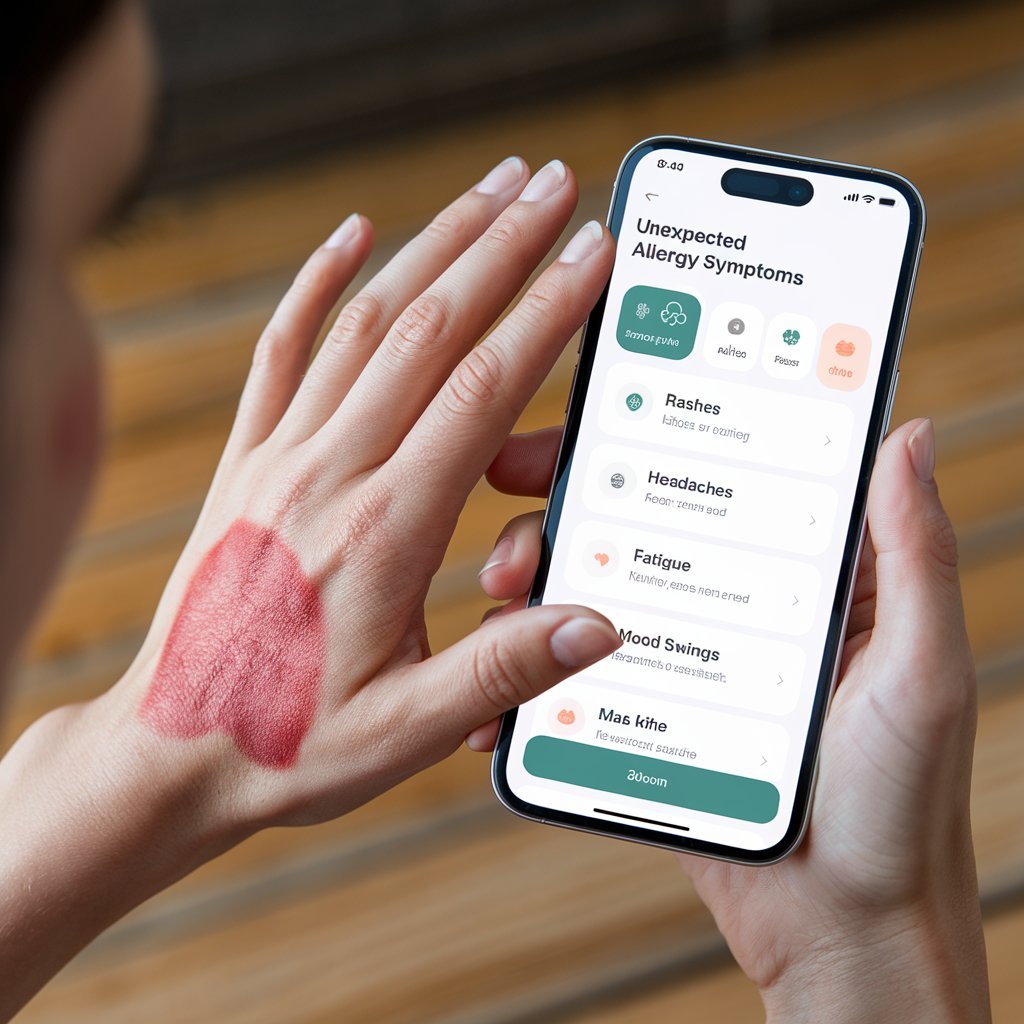
Seasonal allergies can sometimes cause dark circles under the eyes, known as “allergic shiners.” Nasal congestion from allergen exposure causes the blood vessels and tissues around your sinuses to become swollen with excess fluids. This excess fluid makes it harder for blood to drain from the small blood vessels in your face, leading to puffiness and purple or blue-grey colored circles under your eyes.
Dark circles under the eyes can also be caused by fatigue, genetics, and asthma. If it is due to seasonal allergies, the darkness and puffiness tend to worsen during allergy season or after exposure to specific allergens, such as pollen or mold.
How To Treat It
In addition to avoiding or limiting your exposure to allergens, treatments to reduce allergic shiners include the following:
- Cold compress: Place a damp washcloth in the freezer for a few minutes. Apply the cold cloth to your eyelids to reduce swelling.
- Frequent handwashing: Wash your hands and face after spending time outdoors on high pollen days, and avoid touching your eyes as much as possible during allergy season.
- Air filters: Place HEPA filters in your home to reduce airborne allergens.
- Allergy medications: Antihistamines, decongestants, or nasal corticosteroids can ease nasal congestion, which might decrease the visibility of allergic shiners.
- Hydration: Fluid intake can thin out mucus and make it easier to blow out of your nose. This can help alleviate nasal congestion and swelling around the eyes.
Anxiety
Individuals with seasonal allergies are more likely to suffer from anxiety disorders compared to the rest of the population. The underlying mechanisms linking allergies and anxiety are complex and not fully understood.
Some research shows that inflammation from seasonal allergies affects the brain, which might overstimulate the nervous system and lead to an imbalance of neurotransmitters in charge of mood regulation. Such imbalances raise the risk of anxiety and other mood disorders.
People with severe allergies report higher rates of anxiety, sleep problems, and a lower quality of life, which indicates that more severe symptoms contribute to higher levels of stress and anxiety.
How To Treat It
In addition to allergy treatments, managing anxiety may help alleviate allergy symptoms. Studies have shown that heightened stress and anxiety can exacerbate seasonal allergy symptoms. Although it may take some trial and error to find what works for you, effective anxiety management techniques include the following:
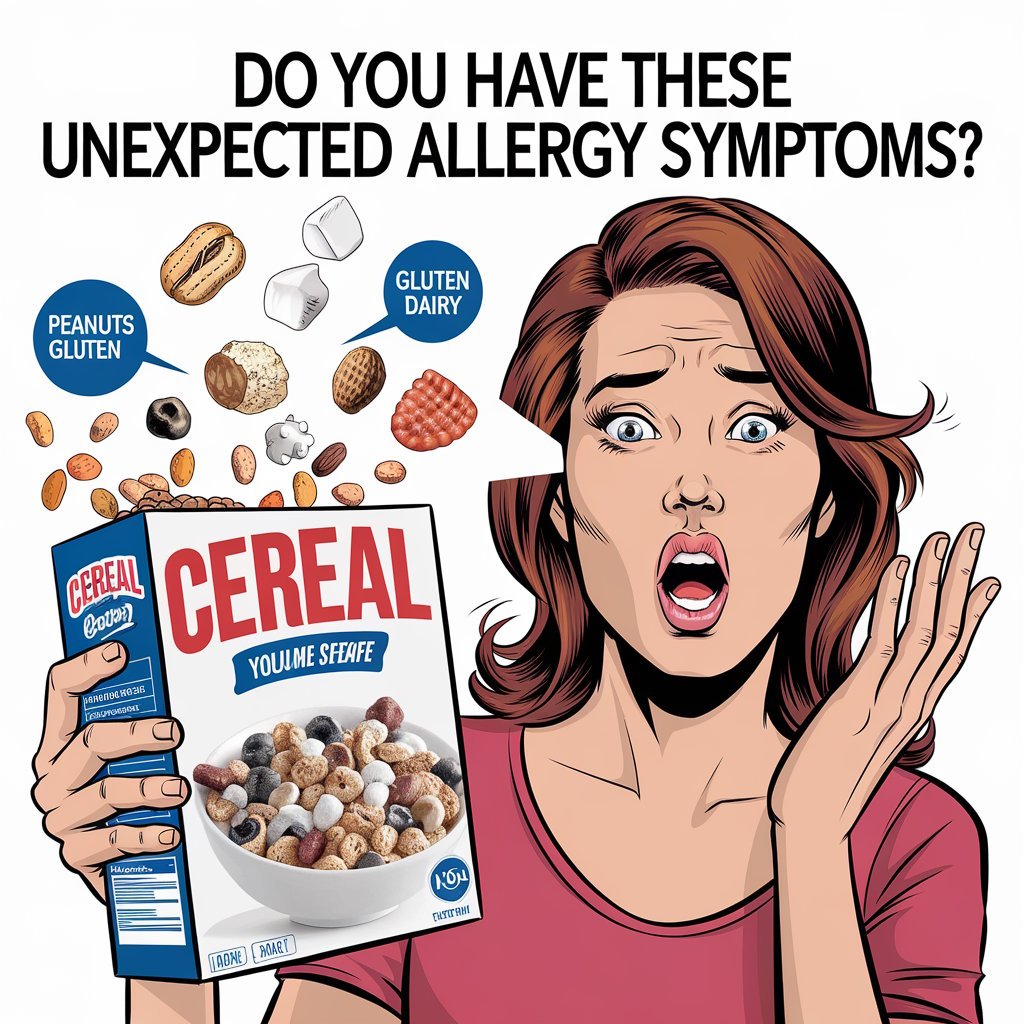
- Breathing exercises: Practice deep breathing exercises or meditation techniques to help calm your mind and relieve anxiety symptoms.
- Regular exercise: When you exercise, there is always the release of feel-good hormones, which can help uplift your mood and de-stress. At least 30 minutes of daily exercise.
- Engage in hobbies: Allocate your time for the things you love doing such as reading, listening to music, cooking, or painting. Maybe take a course and learn that hobby, or get a friend to accompany you to relax while doing it.
- Seek help: Share your anxiety with your close friend or family member, or a professional counselor.
Fatigue
Fatigue is a common, yet often underappreciated symptom of seasonal allergies. A number of reasons may explain why you feel tired during allergy season, including:
- Disrupted sleep: Nasal congestion, coughing, and other allergy symptoms make breathing difficult and cause frequent night wakings and poor-quality sleep.
- Inflammation: Low-grade inflammation can stress your body and reduce energy stores, contributing to fatigue.
- Some allergy medications-such as first-generation antihistamines, such as Benadryl (diphenhydramine)-also include drowsiness as a side effect.
How to Treat It
Good sleep hygiene, allergy treatments, and lifestyle changes can help enhance your quality of sleep and alleviate fatigue.
- Allergy management: Over-the-counter or prescription drugs can help control allergy symptoms by reducing inflammation; better sleep can then be experienced along with decreased daytime fatigue.
- Sleep hygiene: Maintaining a regular sleep schedule, reducing caffeine intake before bedtime, and maintaining a cool, comfortable sleeping environment can all contribute to improved sleep quality.
- Reduce allergen exposure: Limit exposure to allergens on high-pollen days. This can include closing windows, wearing a mask outdoors, or using air purifiers in your home.
- Nutrition: A high-fiber diet based on fruits, vegetables, whole grains, and low-fat proteins improves the quality of sleep. Foods rich in vitamin B, such as fish, beans, turkey, eggs, and dairy products, may increase the body’s melatonin production, hormones that determine the body’s sleep-wake cycle.
Tooth Sensitivity
Spring allergies can trigger the sinuses to become inflamed and swollen, causing nasal congestion. When pressure builds in the maxillary sinuses near the cheekbones, swollen tissues can push down on the roots in your upper back teeth (molars) or the nerves that supply sensation to your teeth and gums.
How To Treat It
Sinus congestion can be addressed with decongestant medications or nasal irrigation to reduce sinus pressure and alleviate tooth pain. Other treatments for tooth sensitivity include:
- Desensitizing toothpaste: Sometimes it may take time to get over tooth sensitivity; thus, desensitizing toothpaste is applied to ease the pain.
- Fluoride treatments: The enamel can be made strong with fluoride treatments that prevent sensitivity in the teeth.
See a dentist if tooth sensitivity or pain persists after taking decongestants or antihistamines for allergies. Breathing through your mouth when your nose is stuffy increases the risk of dental problems, such as cavities and gum disease, so it’s important to rule out other dental issues to prevent worsening symptoms or complications.
Excessive Sweating
Some people with seasonal allergies experience excessive sweating (sweating more than usual) or night sweats.Allergen exposure can activate your body’s “fight or flight” response, triggering the release of adrenaline. Adrenaline increases your heart rate and body temperature, which may lead to excess sweating.
Sometimes, histamine can cause sweating. When your immune system sees an allergen, it is released with a chemical that induces inflammation, so it increases heart rate, dilated blood vessels, and smooth muscle contractions which might cause you to sweat more.
How To Treat It
In addition to adhering to your treatment plan for seasonal allergies, the following may help control excessive sweating and night sweats
- Wear antiperspirant: Applying antiperspirant deodorant to your armpits, feet, hairline, and hands plugs sweat glands, signaling the body to produce less sweat.
- Opt for breathable fabrics: Lightweight, breathable fabrics like linen, cotton, and moisture-wicking materials allow for better airflow throughout the day to help reduce sweating.
Other Remedies for Seasonal Allergy Relief
The only way to truly alleviate seasonal allergy symptoms is by avoiding exposure to allergens such as tree pollen, grass pollen, and ragweed pollen. This can be quite challenging, however, as most seasonal allergens are airborne and can hardly be avoided in their entirety.
Self-care techniques and lifestyle adjustments can also aid in the alleviation of allergic symptoms and, therefore, have a reduced effect on your day-to-day living. These include:
- Close all windows and doors during allergy season
- Check your local pollen count and minimize exposure on high-pollen-count days
- Shower, wash hair, and change clothes after time outdoors
- Use an N-95 filter mask when outdoors
- Begin taking over-the-counter medications, such as antihistamines, two weeks before the allergy season starts
- Install filters in your home
- Use saline nasal sprays to wash out the allergens in the nasal passages and clear sinuses.
When to Consider a Visit to a Healthcare Provider
While self-care approaches and over-the-counter allergy medication can be helpful in managing seasonal allergies, it is advisable to visit a healthcare provider if:
- You experience persistent or severe symptoms that will interfere with your daily activities or ability to get a good night sleep
- Over-the-counter medications fail to improve symptoms
- You show signs of sinus infection such as fever, weakness, fatigue, or cough
- You experience shortness of breath, wheezing (whistling sounds when breathing), or difficulty breathing
- You have another condition that can worsen seasonal allergy symptoms, such as asthma or nasal polyps.
A Quick Review
Seasonal allergies can trigger some surprising symptoms beyond the typical sneezing, runny nose, and itchy eyes. Headaches, fatigue, anxiety, tooth pain, undereye circles, and excessive sweating are not expected symptoms of allergies.
Seek medical attention if you experience these symptoms, especially during allergy season. Early treatment can help manage symptoms and reduce the impact that allergy symptoms have on your daily activities and quality of life.
